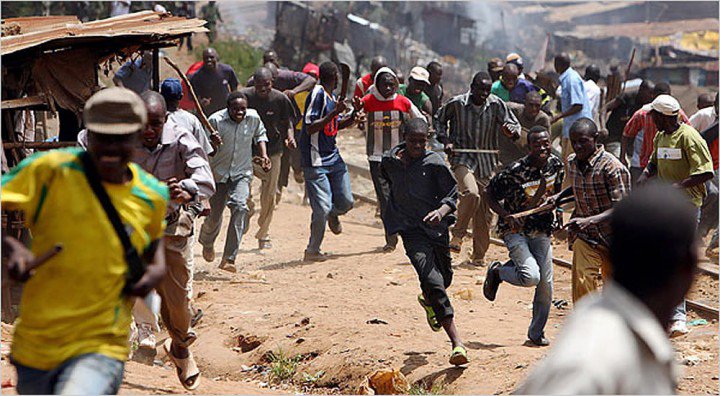Nairametrics| Along the border with Niger Republic, just inside Katsina state, sits one of the most important towns in Nigeria, Jibiya. Jibiya’s importance stems from the fact that it sits at the end of Nigeria’s most important internal trading corridor, the LAKAJI corridor, and is also the centre of a whole lot of smuggling, especially textiles. It’s importance is highlighted by the fact that in 2005, when Customs attempted to crack down on smuggling, the border post was burned down. Customs has behaved itself ever since.
The LAKAJI corridor, which I talked about earlier, encompasses a full third of all Nigeria’s states, including states that are currently in the midst of the ongoing pastoral conflict, which the government has either ignored, or not paid proper attention to, or when they’ve chosen to act, their actions have made things worse. Some of these states, are Benue, where almost a year ago, hundreds of people were killed in Agatu; Niger, where regular cattle rustling has become a thorny issue; and Kaduna, where there is a major ongoing crisis, in the south of the state.
From all indications, people of different faiths and ethnicity have lived side by side in the region, peacefully, for generations. So what has gone wrong?
First, as indicated by Nasir El-Rufai, the governor of Kaduna himself, there’s an international dimension to this current crisis. The fact that he’s, by his own admission, gone to compensate non-Nigerian Fulani, while ignoring Nigerian non-Fulani brings questions where the governor’s loyalty lies. His countrymen, or those he perceives as his tribesmen regardless of nationality? This question, and the answer, actually strikes at the core of our Nigerian union. Who is a Nigerian? Who is more important to the Nigerian state? It’s either El-Rufai does not understand this, which would be sad, or he understands, but doesn’t care. Which would be both tragic, and disastrous.
From where I am standing, if more people come to the conclusion that the sitting governor of a Nigerian state is more loyal to foreigners than to fellow Nigerians, then more people will begin to act against the interests of the Nigerian state. Such actions will have grave implications for Nigeria as a country, Nigerians as a people, and Nigeria’s economy.
As if that were not enough, a statement yesterday, by a nebulous council of Imams adds a further, and more dangerous dimension to this crisis – a religious one. It brings us back to the question of where Governor El-Rufai’s loyalties lie. Is the governor more loyal to people of a certain faith, or loyal to all those he swore to govern?
The final question that rapidly comes to mind is that of the conduct of the President. Asides statements by his aides, statements which came late, and were condescending, he’s yet to address the people of the region directly, or talk about the issue to the cameras. It will be a stretch then, to expect him to visit the disaster area. Note that by our laws, the President, not the governor, controls the security apparatus. Why are killings still ongoing? Why has the IGP not been queried? Why is the crisis in Gambia seemingly more important than this at home?
You see, the states in the LAKAJI corridor, contain in demographic terms, 44% of Nigeria’s population, and in economic terms, 42% of Nigeria’s economic activity. Figures accurate as of 2006 for population, and 2014 for economic activity. It can’t be stressed that it is a geographically contiguous zone, in which EVERY state minus Jigawa, Lagos and Osun saw action in the pastoral conflict, either cattle rustling, or herdsmen attacks, in 2016. The implications of this stepping up of attacks are grave, and potentially devastating, to a large percentage both of Nigeria’s economy, and it’s population.
